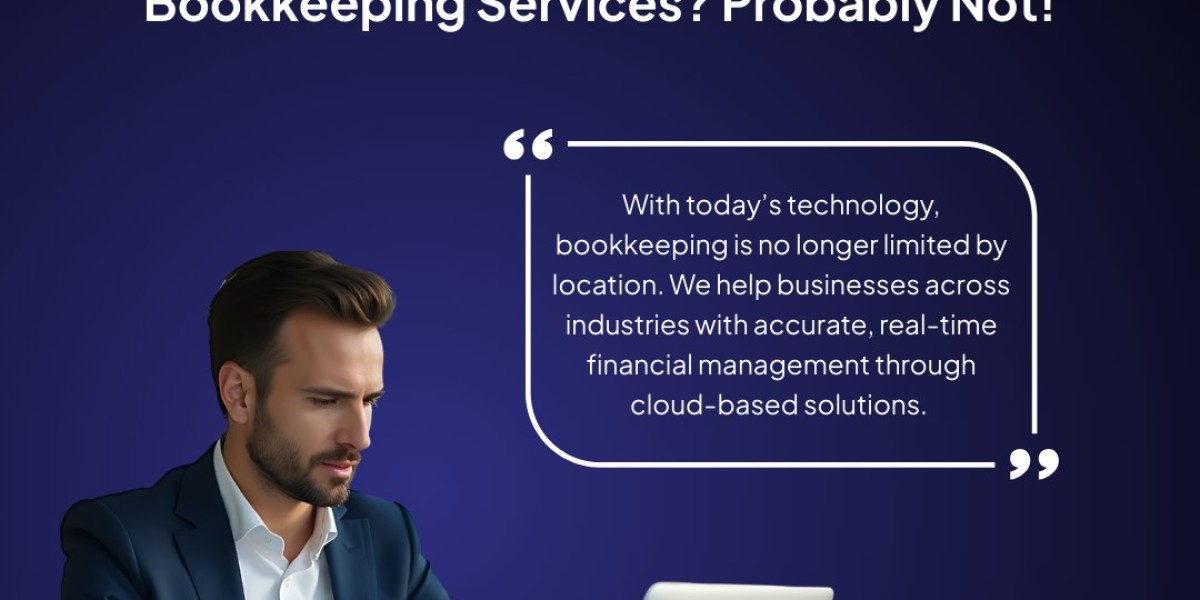Outsource bookkeeping services to save time, cut costs, and stay compliant. Discover how U.S. businesses benefit from professional, remote financial support.
For many businesses, managing books in-house can quickly become time-consuming, error-prone, and costly. That’s why companies across the U.S.—from startups to mid-sized firms—are turning to outsource bookkeeping services to keep their finances in order without increasing overhead.
Outsourcing allows businesses to access experienced professionals who handle financial records accurately, ensure tax compliance, and deliver timely reports—all without the need for a full-time employee.
What Does It Mean to Outsource Bookkeeping Services?
To outsource bookkeeping services means hiring an external provider to handle your business’s financial recordkeeping. These providers may be located within the U.S. or offshore, but they work remotely using cloud-based accounting software to record transactions, reconcile accounts, and prepare reports.
Services typically include:
Recording income and expenses
Bank and credit card reconciliations
Accounts payable and receivable tracking
Payroll journal entries
Monthly reports (P&L, Balance Sheet, Cash Flow)
Sales tax tracking and filing support
Year-end preparation and CPA collaboration
Common platforms include QuickBooks Online, Xero, Zoho Books, and NetSuite, providing real-time access and high transparency.
Why U.S. Businesses Outsource Their Bookkeeping
✅ 1. Cost Reduction
Hiring a full-time bookkeeper involves salary, benefits, training, and overhead. Outsourcing offers the same expertise—often at a lower cost—with flexible pricing based on service scope.
✅ 2. Expert-Level Accuracy
Outsourced bookkeeping teams are trained in U.S. GAAP standards, tax compliance, and industry-specific workflows. Their processes reduce errors and ensure timely reporting.
✅ 3. Focus on Core Operations
When financial tasks are off your plate, you and your team can focus on sales, service, and growth—not spreadsheets and reconciliations.
✅ 4. Real-Time Financial Insights
With cloud systems, you get real-time dashboards, reports, and alerts. This gives better visibility into cash flow and performance.
✅ 5. Scalable Services
As your business grows, outsourced providers can expand their support—without you needing to hire more staff or restructure internally.
What’s Included When You Outsource Bookkeeping Services?
A typical outsourced bookkeeping package includes:
Chart of accounts setup and maintenance
Daily transaction posting and bank feed sync
Invoice generation and payment tracking
Expense classification and management
Monthly financial statements
Payroll support entries
Sales tax tracking
Year-end close and CPA handoff
These services can be customized based on business size, industry, and complexity.
How Providers Like IBN Technologies Support U.S. Companies
Reliable outsourcing partners like IBN Technologies specialize in helping U.S. businesses maintain financial clarity and compliance through structured bookkeeping services.
IBN offers:
Dedicated bookkeepers familiar with U.S. tax rules and GAAP
Cloud integration with leading platforms like QuickBooks and Xero
Secure document exchange via encrypted systems
Timely financial reporting and review
Industry-specific workflows (retail, healthcare, legal, etc.)
Scalable packages and responsive client service
This combination of experience, security, and flexibility makes IBN a valuable partner for outsourcing bookkeeping functions.
Who Should Outsource Bookkeeping Services?
Outsourcing is an ideal solution for:
Small businesses that can’t justify a full-time bookkeeper
Startups that need clean records to secure funding or loans
Freelancers and consultants looking to stay tax-ready
Ecommerce sellers managing large volumes of sales and expenses
CPA firms needing to offload routine tasks for high-value clients
If bookkeeping is slowing you down or falling behind, outsourcing can provide structure, support, and peace of mind.
What to Look for in a Bookkeeping Outsourcing Partner
When choosing a provider, ask:
Are they familiar with U.S. regulations and standards?
Do they have experience with your industry or niche?
What cloud software do they support?
How secure is their system for storing financial data?
Are services scalable as your needs evolve?
Is communication clear and consistent?
The right provider should be a seamless extension of your business—reliable, responsive, and committed to your financial accuracy.
Conclusion
When you outsource bookkeeping services, you give your business the gift of time, clarity, and compliance. With professional support handling your day-to-day finances, you can make better decisions, avoid tax season stress, and grow with confidence.
Whether you’re launching a startup or optimizing an existing operation, outsourced bookkeeping is a smart, scalable solution for modern business needs.








